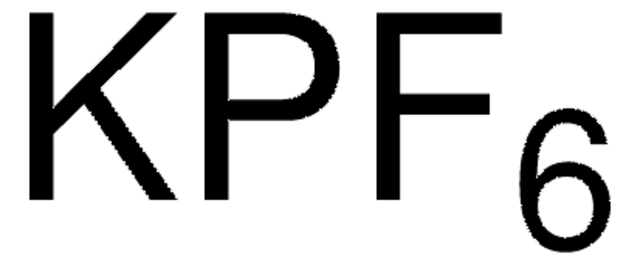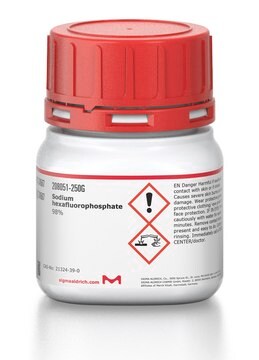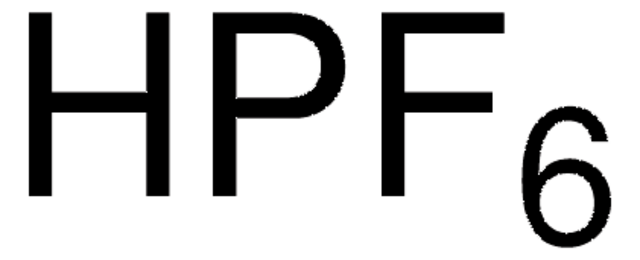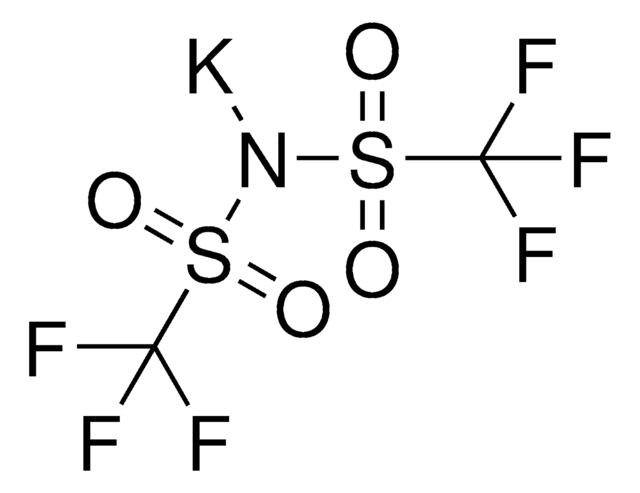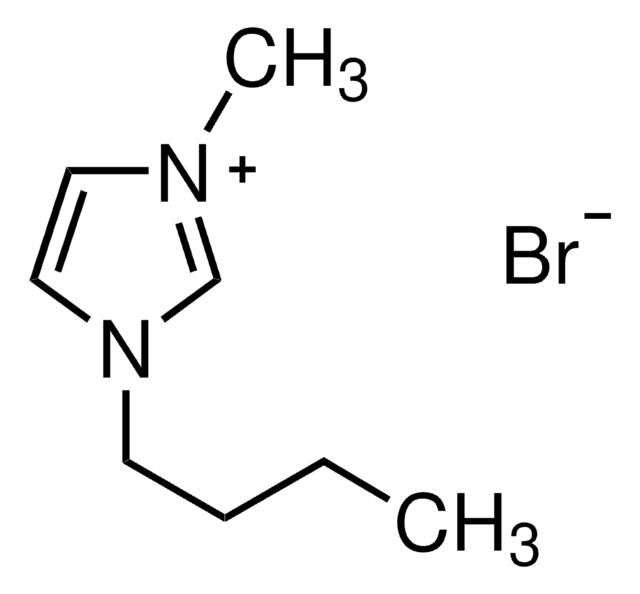Kluczowe dokumenty
515973
Potassium hexafluorophosphate
99.5% trace metals basis
Synonim(y):
Potassium fluophosphate, Potassium hexafluorophosphate, Potassium hexafluorophosphate (KPF)
About This Item
Polecane produkty
Poziom jakości
Próba
99.5% trace metals basis
Formularz
solid
zanieczyszczenia
≤5500.0 ppm Trace Metal Analysis
mp
575 °C (lit.)
gęstość
2.75 g/mL at 25 °C (lit.)
ciąg SMILES
[K+].F[P-](F)(F)(F)(F)F
InChI
1S/F6P.K/c1-7(2,3,4,5)6;/q-1;+1
Klucz InChI
YZDGRYDIGCWVND-UHFFFAOYSA-N
Szukasz podobnych produktów? Odwiedź Przewodnik dotyczący porównywania produktów
Zastosowanie
- Multifunctional potassium hexafluorophosphate passivate interface defects for high efficiency perovskite solar cells: Potassium hexafluorophosphate (KPF6) is used to enhance the interface between SnO2 quantum dots and perovskite (Z Wang et al., 2021).
- Potassium hexafluorophosphate additive enables stable lithium–sulfur batteries: An optimized amount of KPF6 added to the electrolyte improves the cycling stability of lithium-sulfur batteries (J Li et al., 2020).
- Dual electrolyte additives of potassium hexafluorophosphate and tris (trimethylsilyl) phosphite for anode-free lithium metal batteries: KPF6 and tris(trimethylsilyl) phosphite enhance the electrochemical performance of anode-free lithium metal batteries (TM Hagos et al., 2019).
Hasło ostrzegawcze
Danger
Zwroty wskazujące rodzaj zagrożenia
Zwroty wskazujące środki ostrożności
Klasyfikacja zagrożeń
Eye Dam. 1 - Skin Corr. 1B
Kod klasy składowania
8A - Combustible corrosive hazardous materials
Klasa zagrożenia wodnego (WGK)
WGK 1
Temperatura zapłonu (°F)
Not applicable
Temperatura zapłonu (°C)
Not applicable
Środki ochrony indywidualnej
Eyeshields, Faceshields, Gloves, type P3 (EN 143) respirator cartridges
Wybierz jedną z najnowszych wersji:
Masz już ten produkt?
Dokumenty związane z niedawno zakupionymi produktami zostały zamieszczone w Bibliotece dokumentów.
Klienci oglądali również te produkty
Nasz zespół naukowców ma doświadczenie we wszystkich obszarach badań, w tym w naukach przyrodniczych, materiałoznawstwie, syntezie chemicznej, chromatografii, analityce i wielu innych dziedzinach.
Skontaktuj się z zespołem ds. pomocy technicznej